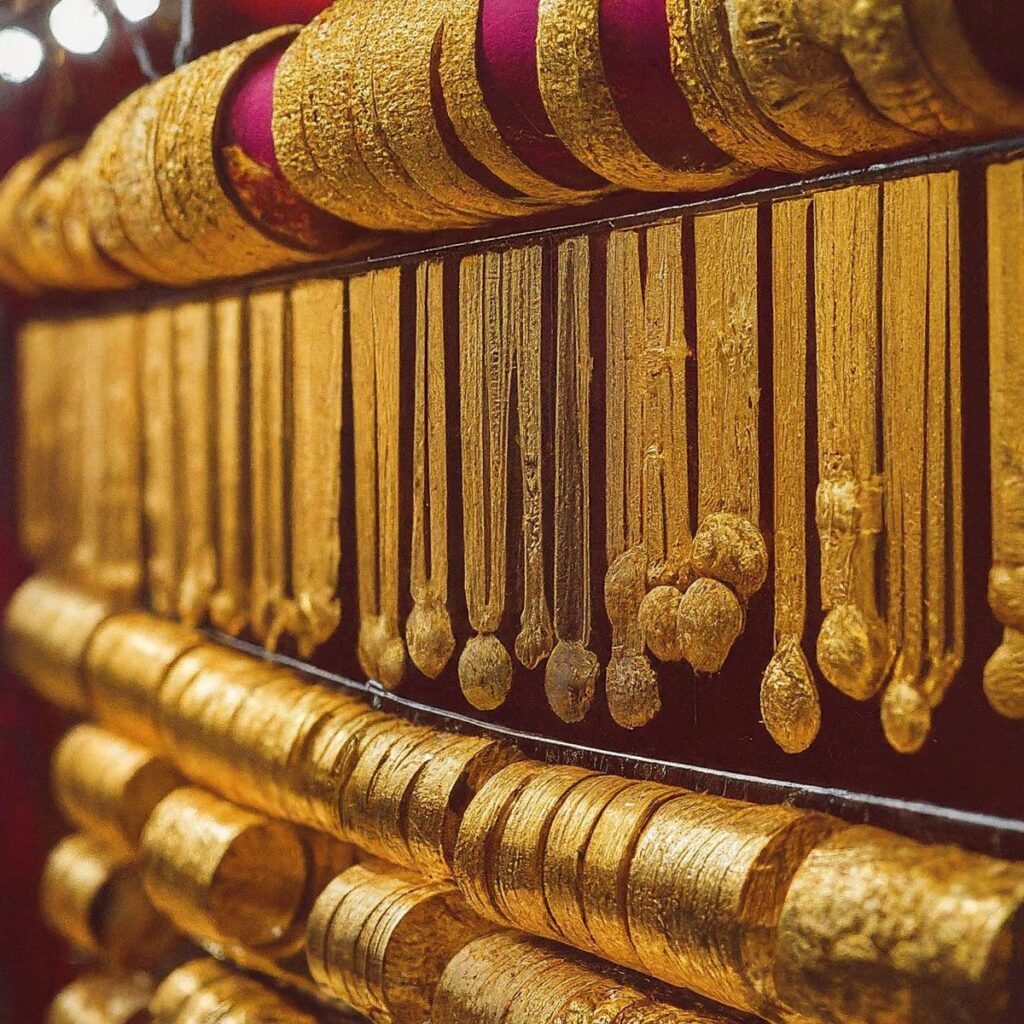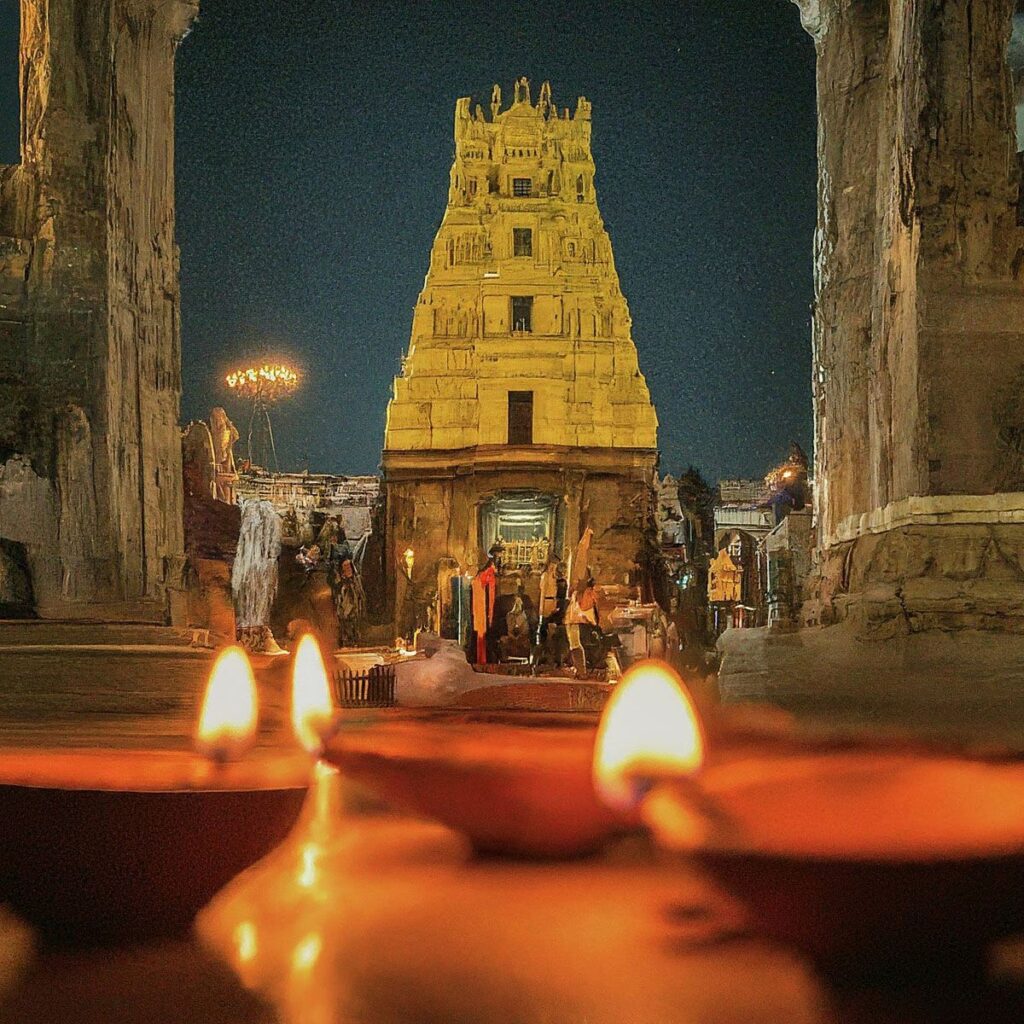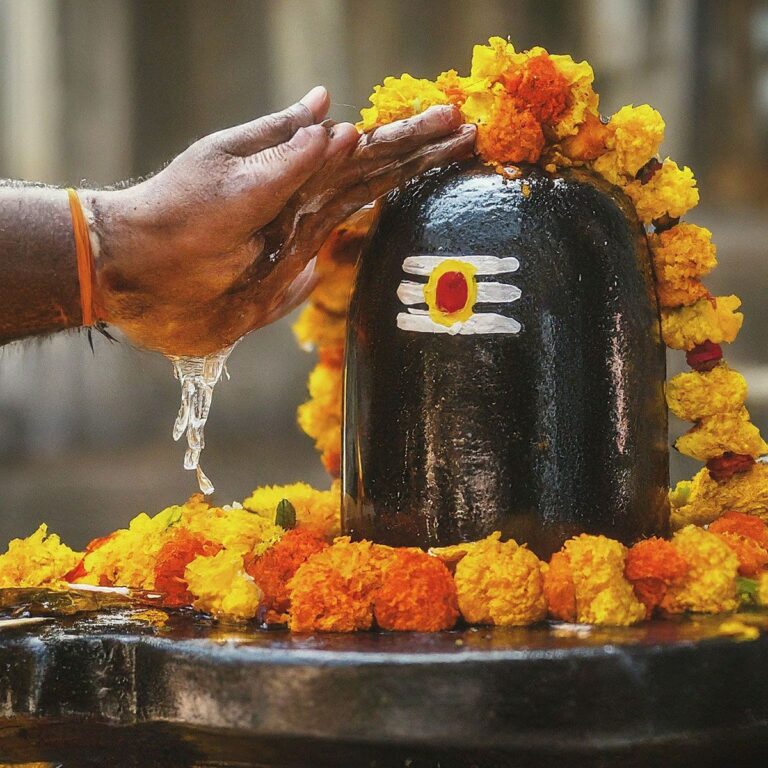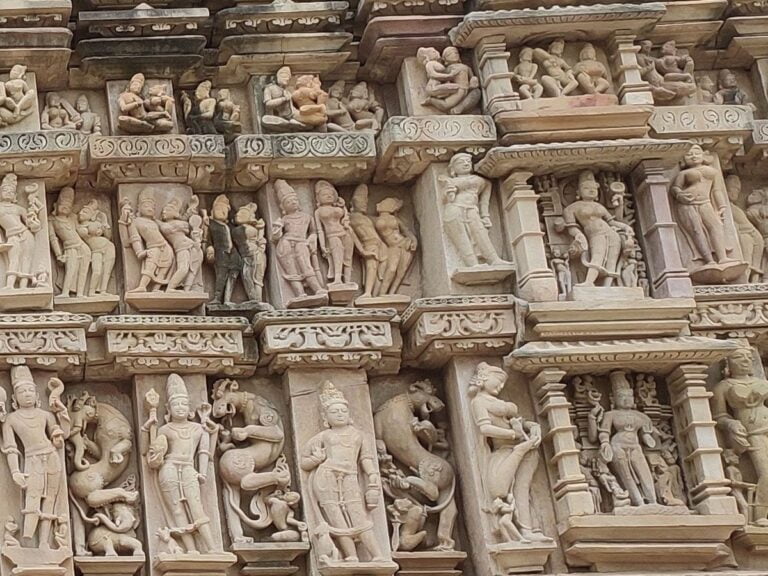Significance of Akshaya Tritiya 2024
Akshaya Tritiya, an annual Hindu festival celebrated with grandeur and devotion, holds a unique place in the hearts of millions. Known as the “Day of Eternal Prosperity,” it symbolizes abundance, auspiciousness, and the eternal nature of goodness. This detailed article aims to explore the multifaceted dimensions of Akshaya Tritiya, shedding light on its historical, mythological, cultural, and spiritual significance.

Contents
Historical and Mythological Origins of Akshaya Tritiya:
- Legend of Parashurama: One of the most prominent myths surrounding Akshaya Tritiya is the belief that it marks the incarnation of Lord Vishnu as Parashurama, the sixth avatar of Vishnu. According to Hindu mythology, Parashurama appeared on earth to rid it of tyrannical rulers and restore dharma (righteousness). His birth symbolizes the eternal cycle of divine incarnations to maintain cosmic balance and uphold moral order.
- The Descent of the Ganges: Another significant myth associated with Akshaya Tritiya is the descent of the sacred river Ganges (Ganga) to earth. According to Hindu scriptures, King Bhagiratha performed rigorous penance to bring the divine river down from the heavens to purify the ashes of his ancestors and liberate their souls. The descent of Ganga on Akshaya Tritiya is believed to have sanctified the earth and bestowed divine blessings upon humanity.
- Sudama and Krishna: The festival is also linked to the story of Sudama, a childhood friend of Lord Krishna. Legend has it that Sudama visited Krishna on Akshaya Tritiya, bearing a humble gift of rice flakes (poha) as a token of his love and devotion. Krishna welcomed Sudama with open arms and bestowed upon him abundant wealth and prosperity, symbolizing the blessings of Akshaya Tritiya.
- Mahabharata Connection: Akshaya Tritiya finds mention in the epic Mahabharata, where it is believed to be the day when the Pandavas received the divine Akshaya Patra (inexhaustible vessel) from Lord Surya (the Sun God). The Akshaya Patra provided an unlimited supply of food during the Pandavas’ exile, highlighting the festival’s association with abundance and sustenance.
- Astronomical Significance: Akshaya Tritiya falls on the third lunar day of the bright half of the Indian lunar month of Vaishakha (April-May). Astronomically, it coincides with the Sun’s exaltation in the zodiac sign of Aries (Mesha), signifying a time of heightened energy, vitality, and auspiciousness. The alignment of celestial bodies during Akshaya Tritiya is believed to amplify the festival’s divine potency and blessings.
Read More>> Char Dham Yatra – A Complete Guide to Spiritual Destination

Significance of Akshaya Tritiya in Hindu Culture:
- Prosperity and Abundance: Akshaya Tritiya is revered as the “Day of Eternal Prosperity.” It is believed that any auspicious activity undertaken on this day brings unending prosperity and success. The festival symbolizes abundance in all aspects of life, including wealth, health, and spiritual well-being.
- Auspicious Beginnings: Akshaya Tritiya is considered an auspicious time for new beginnings and ventures. People initiate important projects, investments, marriages, and housewarming ceremonies on this day, seeking divine blessings for success and prosperity. It is believed that endeavors commenced on Akshaya Tritiya yield favorable outcomes and endure eternally.
- Spiritual Growth: Beyond its material associations, Akshaya Tritiya holds deep spiritual significance. It is regarded as an opportune time for spiritual growth, self-reflection, and inner transformation. Devotees engage in spiritual practices, undertake pilgrimages, and perform acts of charity to purify the mind and seek divine grace.
- Mythological Roots: Akshaya Tritiya is rooted in Hindu mythology, with legends associating it with significant celestial events and divine incarnations. It is believed to mark the incarnation of Lord Vishnu as Parashurama, the descent of the sacred river Ganges to earth, and other auspicious occurrences, highlighting its divine origins.
- Cultural Traditions: Akshaya Tritiya is celebrated with great cultural fervor and enthusiasm across India. Various regions have their unique customs and rituals associated with the festival, including temple visits, fasting, offering prayers to deities, and purchasing gold or precious items. The festival fosters a sense of community and cultural unity among devotees.
- Generosity and Charity: Akshaya Tritiya emphasizes the importance of generosity and philanthropy. Devotees engage in acts of charity, donating food, clothing, and money to the needy. Giving alms and performing selfless deeds on this day are believed to accrue immense merit and blessings.
- Gold Purchases: Buying gold on Akshaya Tritiya is a prevalent tradition believed to bring prosperity and good fortune. It is considered an auspicious time to invest in gold or precious items, symbolizing wealth, security, and abundance. Gold purchases on this day are believed to safeguard against financial hardships and ensure prosperity throughout the year.
- Harvest Festival: In certain regions, Akshaya Tritiya coincides with the agricultural harvest season. Farmers offer prayers for a bountiful harvest and express gratitude to the earth for its abundance. The festival marks the beginning of agricultural activities, symbolizing growth, fertility, and prosperity.
Read More>> Shree Aparna Devi Temple Bhabanipur Shaktipeeth Miracles

Akshaya Tritiya Rituals and Traditions:
- Holy Bath (Snana): Devotees begin the day of Akshaya Tritiya by taking a sacred bath in rivers, lakes, or holy water bodies. This act of purification symbolizes the cleansing of sins and the renewal of spiritual energy. Many people also visit temples to offer prayers after the holy bath.
- Temple Visits (Darshan): Akshaya Tritiya is considered an auspicious day for visiting temples dedicated to Lord Vishnu, Goddess Lakshmi, or other deities associated with prosperity and abundance. Devotees offer prayers, perform rituals, and seek blessings for prosperity, success, and well-being.
- Puja and Offerings: At home or in temples, devotees perform special puja ceremonies dedicated to Lord Vishnu and Goddess Lakshmi. They offer flowers, fruits, sweets, incense, and other sacred items to the deities while reciting Vedic hymns and prayers. The puja is conducted with devotion and reverence, invoking divine blessings for prosperity and abundance.
- Gold Purchases: One of the most prevalent traditions of Akshaya Tritiya is buying gold or precious items. It is believed that purchasing gold on this day brings perpetual prosperity and good fortune. People flock to jewelry stores and markets to invest in gold, considering it an auspicious start to a prosperous journey.
- Charity and Donation: Giving alms and performing acts of charity are considered highly meritorious on Akshaya Tritiya. Devotees donate food, clothing, money, and other essentials to the needy and deserving individuals. Charity is believed to purify the soul, accrue divine blessings, and ensure abundance for the giver.
- Fasting and Austerity: Some devotees observe fasting or practice austerity on Akshaya Tritiya as a form of spiritual discipline. Fasting is believed to cleanse the body and mind, enhance spiritual focus, and invoke divine blessings. Many people abstain from consuming grains and non-vegetarian food on this day.
- Marriages and Auspicious Ceremonies: Akshaya Tritiya is considered an auspicious day for marriages, engagements, and other significant ceremonies. Couples tie the knot or exchange vows in the presence of family and friends, seeking blessings for a prosperous and harmonious life together. Business partnerships and ventures are also initiated on this day.
- Feasting and Celebrations: Akshaya Tritiya is celebrated with festive fervor and enthusiasm. Families come together to share meals, exchange gifts, and participate in cultural activities. Special delicacies and sweets are prepared to mark the occasion, adding joy and merriment to the festivities.
Read More>> Bhadrachalam Temple | Bhadradri Seetha Ramachandra Swamy

Regional Celebrations:
While Akshaya Tritiya is celebrated across India, it manifests with unique regional flavors and customs. In states like Maharashtra and Gujarat, devotees observe “Akha Teej” with elaborate rituals, including temple visits, fasting, and offering prayers to deities. In South India, especially Karnataka and Tamil Nadu, the festival assumes a festive hue with special puja ceremonies, feasts, and cultural performances.
In Odisha and West Bengal, Akshaya Tritiya coincides with the agricultural harvest season, symbolizing the abundance of nature’s bounty. Farmers express gratitude to the land and pray for a prosperous agricultural year ahead. Similarly, in Punjab and Haryana, the festival is celebrated as “Akha Teej” with traditional folk songs, dances, and community gatherings.
Spiritual Significance of Akshaya Tritiya:
- Opportunity for Spiritual Growth: Akshaya Tritiya is regarded as an auspicious time for spiritual seekers to deepen their practice and accelerate their spiritual growth. The heightened spiritual energies during this period make it conducive for meditation, prayer, and self-reflection. Devotees use this sacred time to cultivate virtues, overcome inner obstacles, and draw closer to the divine.
- Renewal and Purification: The act of taking a holy bath on Akshaya Tritiya symbolizes spiritual purification and renewal. Just as the body is cleansed with water, devotees strive to cleanse their minds and hearts of impurities, negative emotions, and egoistic tendencies. The festival encourages individuals to embark on a journey of inner purification and self-transformation.
- Seeking Divine Grace: Devotees engage in rituals, prayers, and acts of devotion on Akshaya Tritiya to seek the blessings of the divine. They express gratitude for past blessings, seek guidance for the future, and surrender their desires and aspirations to the divine will. The festival is an opportunity to connect with the divine presence within and invoke divine grace for spiritual upliftment.
- Practice of Charity and Selflessness: Akshaya Tritiya emphasizes the importance of charity, selflessness, and compassion. Devotees engage in acts of charity, donating to the needy and serving others with kindness and generosity. By giving selflessly and helping those in need, individuals purify their hearts, accumulate spiritual merit, and align themselves with the divine principle of love and service.
- Vows and Spiritual Practices: Many spiritual seekers undertake vows, austerities, and spiritual practices on Akshaya Tritiya as a means of deepening their commitment to the spiritual path. They may observe fasting, perform rituals, chant mantras, or engage in meditation with heightened sincerity and dedication. The festival provides an auspicious opportunity to intensify one’s spiritual sadhana (practice) and draw closer to the divine.
- Cultivation of Virtues: Akshaya Tritiya inspires devotees to cultivate spiritual virtues such as humility, gratitude, compassion, and forgiveness. By embodying these virtues in their thoughts, words, and actions, individuals align themselves with higher spiritual principles and elevate their consciousness. The festival serves as a reminder of the eternal values that lead to spiritual fulfillment and inner peace.
In essence, Akshaya Tritiya transcends the boundaries of time and space, embodying the eternal principles of abundance, auspiciousness, and spiritual evolution. Rooted in mythology, upheld by tradition, and enriched by spiritual wisdom, this timeless festival continues to inspire millions with its message of eternal prosperity and goodness. As we commemorate Akshaya Tritiya each year, let us embrace its teachings and strive to cultivate abundance, prosperity, and spiritual fulfillment in our lives and communities.






